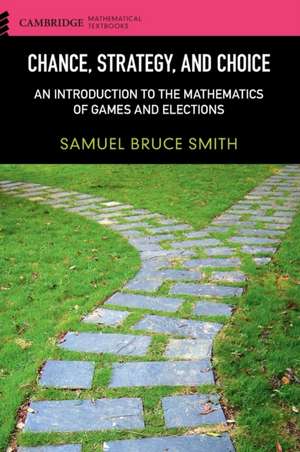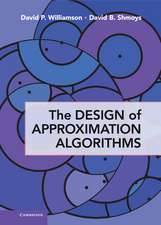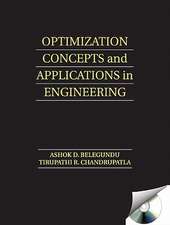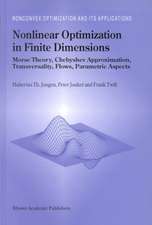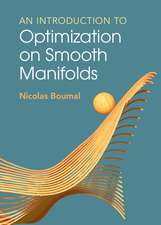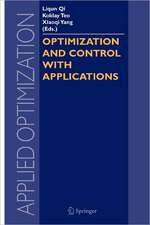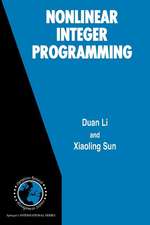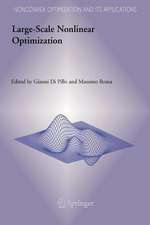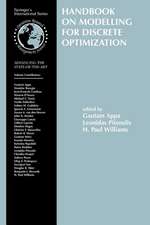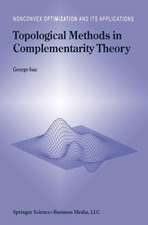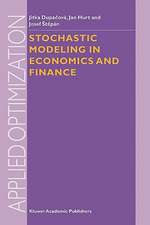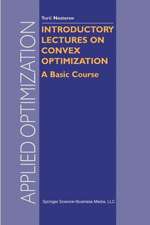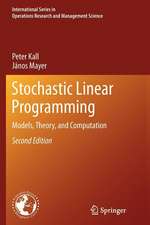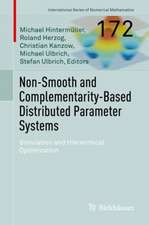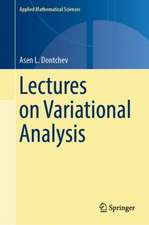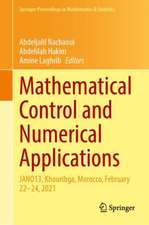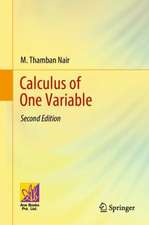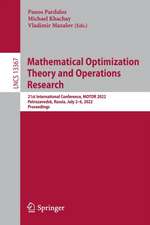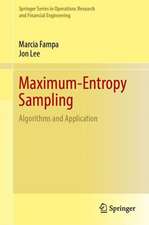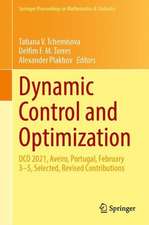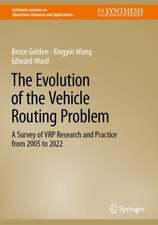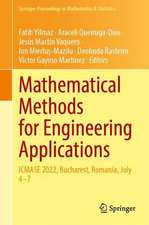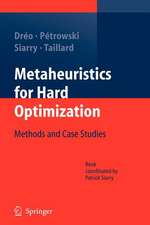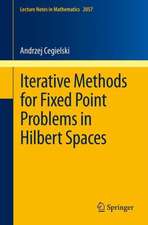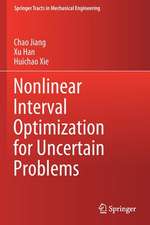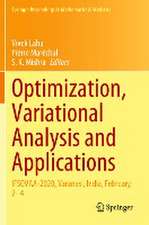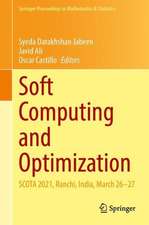Chance, Strategy, and Choice: An Introduction to the Mathematics of Games and Elections: Cambridge Mathematical Textbooks
Autor Samuel Bruce Smithen Limba Engleză Hardback – 28 iun 2015
Preț: 361.13 lei
Nou
Puncte Express: 542
Preț estimativ în valută:
69.12€ • 74.61$ • 57.96£
69.12€ • 74.61$ • 57.96£
Carte tipărită la comandă
Livrare economică 19 aprilie-03 mai
Preluare comenzi: 021 569.72.76
Specificații
ISBN-13: 9781107084520
ISBN-10: 1107084520
Pagini: 352
Ilustrații: 60 b/w illus. 243 tables 300 exercises
Dimensiuni: 184 x 261 x 29 mm
Greutate: 1 kg
Editura: Cambridge University Press
Colecția Cambridge University Press
Seria Cambridge Mathematical Textbooks
Locul publicării:New York, United States
ISBN-10: 1107084520
Pagini: 352
Ilustrații: 60 b/w illus. 243 tables 300 exercises
Dimensiuni: 184 x 261 x 29 mm
Greutate: 1 kg
Editura: Cambridge University Press
Colecția Cambridge University Press
Seria Cambridge Mathematical Textbooks
Locul publicării:New York, United States
Cuprins
1. Introduction; 2. Games and elections; 3. Chance; 4. Strategy; 5. Choice; 6. Strategy and choice; 7. Choice and chance; 8. Chance and strategy; 9. Nash equilibria; 10. Proofs and counterexamples; 11. Laws of probability; 12. Fairness in elections; 13. Weighted voting; 14. Gambling games; 15. Zero-sum games; 16. Partial conflict games; 17. Take-away games; 18. Fairness and impossibility; 19. Paradoxes and puzzles in probability; 20. Combinatorial games; 21. Borda versus Condorcet; 22. The Sprague–Grundy theorem; 23. Arrow's impossibility theorem.
Recenzii
'Sam Smith's book offers an intriguing juxtaposition of chance, strategy, and elections. The mathematical analysis is rigorous without being too formal or forbidding. The applications to topics in economics and political science - including auctions, power, and voting - as well as to parlor games like poker will engage both students and professionals.' Steven Brams, New York University
'I like the logical flow and length of the chapters and I like that the layout is simple (no excessively boxed theorems, etc.). There are numerous chapters, with one key concept explained in each. One could envision that each chapter would roughly be covered in a class period.' John Cullinan, Bard College, New York
'The author's approach does seem as if it would appeal to a broad range of instructors and students: there are enough chapters that an instructor could choose a collection of topics according to his or her interest. Furthermore, the inclusion of proof-based sections would allow an instructor to use the text for a course targeted at math majors and minors rather than at a general nontechnical audience.' James Parson, Hood College, Maryland
'The book is well written and interesting. Students should have little difficulty reading and understanding this book … The book covers the topics with clarity and applies game theory to 'real-world' problems.' Dan Cunningham, State University of New York, Buffalo
'While some of Smith's material has origins more than 100 years old, the author engages the reader through modern developments, such as the minimax theorem (1928), the work of John Nash and Kenneth Arrow (1950s) and even more recent developments by Steven Brams, William Zwicker and Alan Taylor (1980s–2000s). The author does an effective job of presenting this material to an audience of non-science majors with no prerequisites. A unique feature of the text is the treatment of combinatorial games such as Nim and Hackenbush alongside traditional two person game theory.' David Vella, Skidmore College, New York
'Chance, Strategy, and Choice fits an important niche for general audience textbooks about games, elections, and other introductory material related to social choice theory … One of my favorite features of the book is that it does an excellent job of integrating the topics of games and elections to illustrate the interconnections between the different areas of social choice theory, often through illustrative examples.' Adam Graham-Squire, MAA Reviews
'I like the logical flow and length of the chapters and I like that the layout is simple (no excessively boxed theorems, etc.). There are numerous chapters, with one key concept explained in each. One could envision that each chapter would roughly be covered in a class period.' John Cullinan, Bard College, New York
'The author's approach does seem as if it would appeal to a broad range of instructors and students: there are enough chapters that an instructor could choose a collection of topics according to his or her interest. Furthermore, the inclusion of proof-based sections would allow an instructor to use the text for a course targeted at math majors and minors rather than at a general nontechnical audience.' James Parson, Hood College, Maryland
'The book is well written and interesting. Students should have little difficulty reading and understanding this book … The book covers the topics with clarity and applies game theory to 'real-world' problems.' Dan Cunningham, State University of New York, Buffalo
'While some of Smith's material has origins more than 100 years old, the author engages the reader through modern developments, such as the minimax theorem (1928), the work of John Nash and Kenneth Arrow (1950s) and even more recent developments by Steven Brams, William Zwicker and Alan Taylor (1980s–2000s). The author does an effective job of presenting this material to an audience of non-science majors with no prerequisites. A unique feature of the text is the treatment of combinatorial games such as Nim and Hackenbush alongside traditional two person game theory.' David Vella, Skidmore College, New York
'Chance, Strategy, and Choice fits an important niche for general audience textbooks about games, elections, and other introductory material related to social choice theory … One of my favorite features of the book is that it does an excellent job of integrating the topics of games and elections to illustrate the interconnections between the different areas of social choice theory, often through illustrative examples.' Adam Graham-Squire, MAA Reviews
Notă biografică
Descriere
This classroom-tested undergraduate textbook is primarily intended for a general education course in game theory at the freshman or sophomore level.
